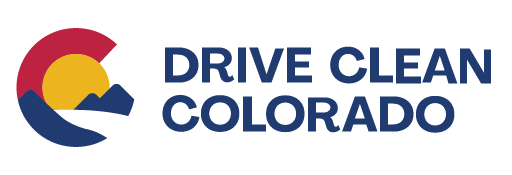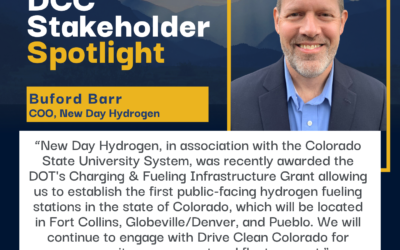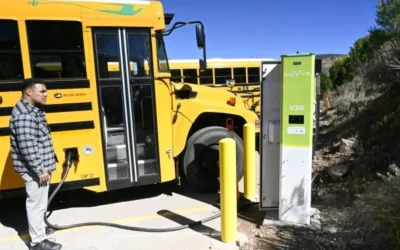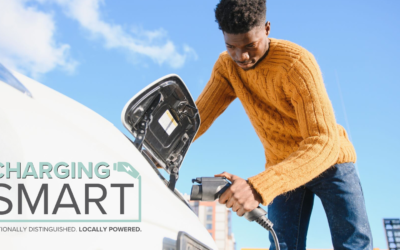Happy Hydrogen Day Everyone! We are so excited to have the Colorado Hydrogen Network as one of our members at Denver Metro Clean Cities. Brian DeBruine, one of the Co-Directors at the Colorado Hydrogen Network was kind enough to chat with us about what projects they have been working on and his involvement with DMCC. Keep reading to hear all about the Hydrogen Fueling Initiative, the Colorado Hydrogen Network’s sustainability goals and what the partnership between the Colorado Hydrogen Network and DMCC will look like in the future!
Organization: Colorado Hydrogen Network
Location: Evergreen, CO
*Note: The following are summarized answers from an interview with Brian DeBruine from the Colorado Hydrogen Network
Hi Brian, thank you for joining us today! Could you start with a brief introduction?
Hello everyone, my name is Brian DeBruine, I am one of the Co-Directors at the Colorado Hydrogen Network. My background is in Electrical Engineering and Business Management and I worked in Systems Engineering at Honeywell Aerospace for 36 years before retiring and starting the Colorado Hydrogen Network.
What is your engagement with Clean Cities and how did it begin?
I began my involvement with Clean Cities in order to help get fuel cell electric vehicles (EVs) established. Currently, there is a stalemate between fuel stations and cars; no one wants to invest in stations without the cars to use them, and no one can use the cars without the fuel stations. The Colorado Hydrogen Network is a nonprofit that acts as a bridge to bring these two facets of EVs together. We work to convince investors to invest in setting up fuel stations as well as help fleets discover and buy EVs. By partnering and working with Clean Cities, I believe that more contact can be made with companies to buy and invest in EVs and get the word out to as many people as possible.
An interesting project I read about on your website is Hydrogen Fueling initiative for building hydrogen stations, can you elaborate on what this project is?
This project is an initiative to build hydrogen stations for hydrogen and fuel cell EVs and is comprised of three stages:
The first stage involves building a pilot station to build fuel. This was actually set in motion last week! NREL heard about a station about to be scrapped and convinced the owner to donate it to CSU to as a hydrogen fueling station in Colorado. This stage also requires zoning where the station will be set up, alerting the fire marshals and other pertinent emergency services and establishing the technology for the fuel station as well as the fuel cell vehicles.

The second stage involves contacting investors and people interested in buying hydrogen fuel for their vehicles and bringing them together to break the stalemate surrounding fuel cell EVs. In this stage, the goal is to create 5 fuel stations total and we hope to get big companies like Shell and BP to invest in hydrogen fuel.
The third and final stage is simple. Once all the groundwork has been laid, the goal is to let the big fuel companies take hydrogen fuel and run with it, hopefully marketing it even further and creating widespread adaption of fuel cell EVs.
What are Colorado Hydrogen Network’s sustainability goals for this coming year and how will your work with the Hydrogen Fueling Initiative help achieve those?
The Colorado Hydrogen Network’s biggest sustainability goal for this upcoming year is to find a way to use renewable energy sources like wind and solar to power everything. Our focus right now is on transportation, and while battery EVs have great applications, they aren’t as practical for vehicles that require a larger range or don’t have time to wait for charging. This is where fuel cell EVs come in. They are better for long distance trips, they don’t require long amounts of charging time, and they are still good for the environment because they produce zero emissions. By creating supply and demand of fuel cell EVs simultaneously, we can develop a transportation network that is completely powered by renewable sources.
What do you take away from your work with the Colorado Hydrogen Network that is helpful to you with your involvement in Clean Cities? Likewise, what about Clean cities helps with your work at the Colorado Hydrogen Network?
The work I do with the Colorado Hydrogen Network and my involvement with Clean Cities are closely tied together. For one thing, both companies have the same goal: zero carbon transportation. As a result of this overlap, it becomes easier to network with people involved with the Colorado Hydrogen Network and Clean Cities that normally would not interact. This allows both groups to get more information out about their respective projects, educate more companies and the general public and communicate with more people about the technology, benefits and incentives that go along with buying and EV, whether it’s battery or fuel cell.
What do you hope to partner with DMCC on in the future?
While there is already some collaboration between the Colorado Hydrogen Network and Clean Cities, I am looking forward to furthering the partnership by partnering to find companies looking to purchase zero emissions vehicles, connecting people that are looking for a fuel cell EV or a battery EV to the appropriate resource that fits their needs, and networking with fleets to help them transition to EVs.
See more DMCC Member Spotlights or learn more about joining DMCC today!






